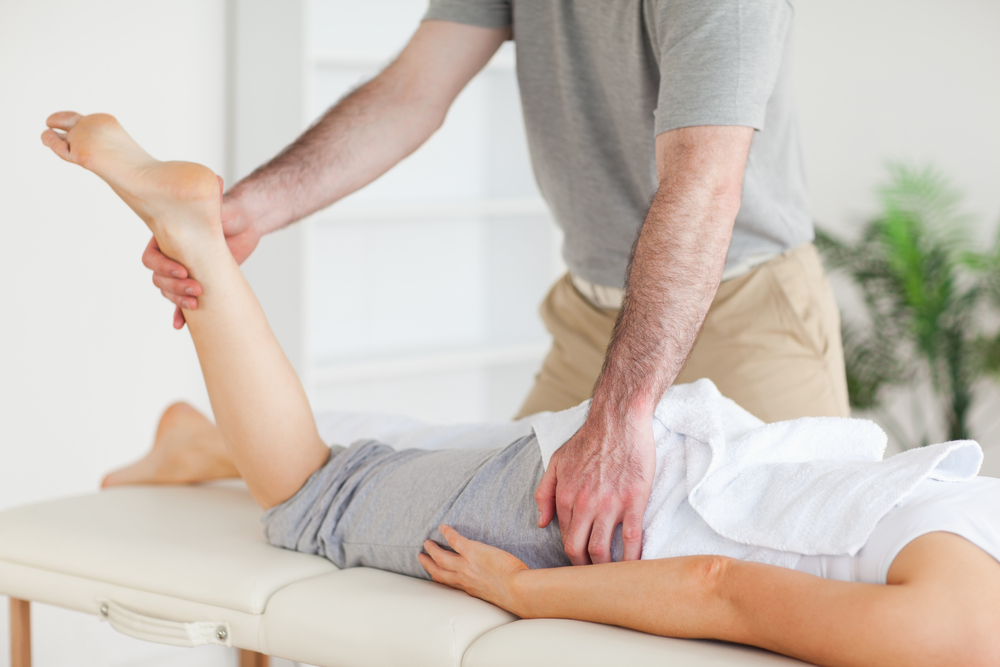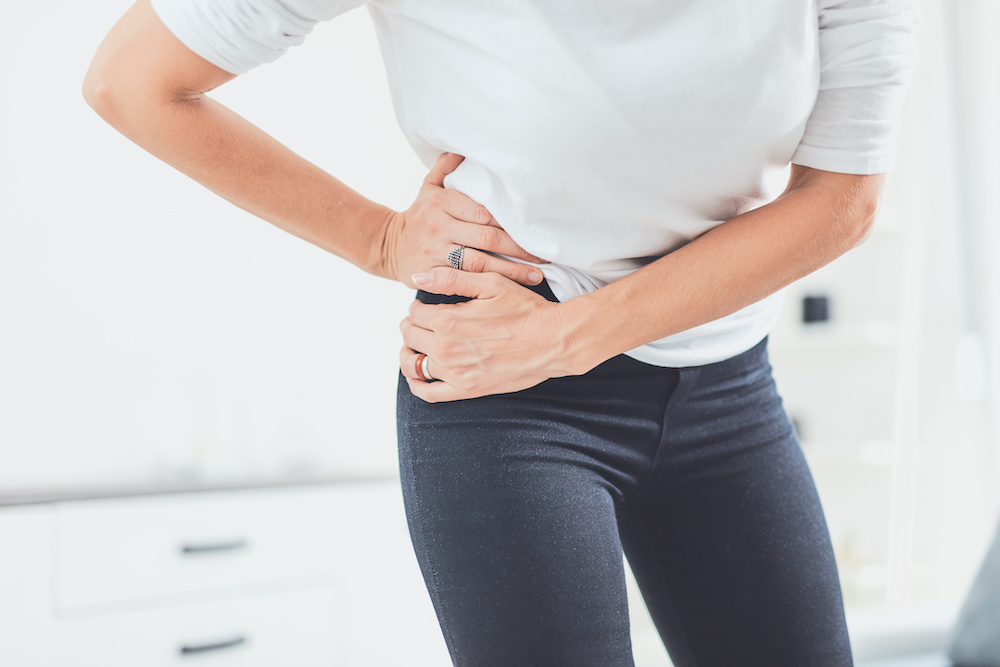Ways to Reduce Inflammation of the Hips
6 min read

If you experience regular pain in your hips, it could very well be related to inflammation. Inflammation of the hips can be caused by an injury or underlying condition. Luckily, there are plenty of simple daily steps that can be taken to prevent hip inflammation and treat it naturally when it does occur.
Why is Hip Inflammation Important to Pay Attention To?
The hip joint is one of two ball-and-socket joints in the body (the other being the shoulder). This complex joint allows your leg to move back and forth as well as left and right. Because of how complicated this joint is, it can be more prone to injury and inflammation. It is important to maintain hip joint health since this joint controls so many important functions like flexibility, balance, and stability.
Sometimes as we age or with overuse, our hips can start to hurt. This could be caused by inflammation. Not only does it interfere with your ability to function properly, but it can seriously hinder your quality of life. Hip pain can make it difficult to do a lot of things, including sitting, walking, bending, and lifting your leg. It can even interfere with your quality of sleep.
What is Inflammation?
Inflammation is an immune system response to injury or infection. When the body detects a threat, it releases certain chemicals to help protect the body and fight off the foreign invader. Sometimes, inflammatory responses can happen inappropriately–such as when there’s actually no foreign invader–and this causes the inflammatory chemicals to attack your healthy tissues, leading to pain and discomfort.
Because the hip joint is complex, the cause of the pain can be difficult to diagnose. It may be hard to tell what the exact source of pain is and whether inflammation is at play vs a hip impingement or a joint that is wearing down. This is why it is important to lean on professionals like your chiropractor to help you diagnose and treat the underlying issue.
What Causes Hip Inflammation?
There are three main conditions that typically cause hip inflammation:
Arthritis of the hip
There is more than one type of arthritis that could affect the hip joint, including osteoarthritis and rheumatoid arthritis. Osteoarthritis and rheumatoid arthritis are two of the most common types of arthritis. The exact cause of arthritis and the treatment approach will vary depending on the type of arthritis you have. Hip arthritis can lead to pain, stiffness, and a clicking sound in the hip joint.
Related blog: How does arthritis affect your hips?
Bursitis of the hip
The bursa are fluid-filled sacs that surround the joints. When the bursa becomes inflamed, it is called bursitis. The hips are one of the more common areas where bursitis can occur, but it can also happen in the shoulder and elbow as well. Bursitis causes feelings of achiness and stiffness in the hips as well as swelling and redness.
Tendonitis of the hip
Tendons are another important part of the hip joint since they connect the muscles to the bones. When tendons become inflamed, it is called tendonitis. Hip tendonitis causes pain that happens gradually and tenderness in the hip.
Hip Inflammation Symptoms
Common symptoms of hip inflammation include:
-
Aching pain
-
Difficulty with movement
-
Limited flexibility and/or range of motion
-
Pain in the hip that feels worse in the morning or after sitting
These are common to a few different conditions so it’s best to see your chiropractor for an evaluation.
How is Hip Inflammation Diagnosed?
In order to diagnose hip inflammation, your chiropractor will want to gather information about your health history and anything that is relevant to the pain. This can help them determine if your pain is related to an injury or an underlying illness. Sometimes, providers also use imaging scans (such as an ultrasound or MRI) to help diagnose the cause of the inflammation. Your chiropractor’s ultimate goal will be to figure out the underlying cause of the pain and inflammation in order to provide treatment that will heal the injury rather than just masking symptoms.
How do Chiropractors Treat Hip Inflammation?
After your chiropractor has determined the underlying cause of your pain, they will move forward with a holistic treatment to help heal the injury. There are a variety of different healing approaches your chiropractor may recommend including:
Other natural remedies that may help to reduce and treat hip inflammation include:
-
Cold and heat therapy. Alternating between heat and ice can help with pain management and reduce inflammation.
-
Herbal supplements. Certain herbal supplements such as turmeric and garlic can also help to reduce inflammation. They would need to be used consistently, even when you don’t have symptoms, to keep the inflammation down.
Ways to Naturally Reduce Hip Inflammation
There are plenty of steps you can take in your everyday life to help reduce inflammation in your body, including hip inflammation.
Reduce excess weight
Maintaining a healthy weight can help to reduce inflammation in the hips and reduce your likelihood of sustaining a hip injury. When there is excess weight on the body, it places extra stress on the joints and can make painful conditions and injuries more likely. Steps to help with weight loss include: eating a healthy diet, quitting unhealthy habits like drinking and smoking, and exercising regularly.
Exercise and stretch regularly
Low-impact exercises such as using an elliptical or riding a bike can help you maintain strength and mobility in your hips. Regular stretching is also important since it helps to maintain flexibility to prevent injury and inflammation.
Eat a nutritious diet
Eating a healthy diet doesn’t just nourish the body with vitamins and minerals, but it can also help to reduce inflammation. Try eating an anti-inflammatory diet to reduce general inflammation throughout the body. Certain foods can increase inflammation in the body, so it is important to avoid these foods and eat a diet that is rich in foods that will reduce inflammation.
Foods to avoid for an anti-inflammatory diet include:
-
Refined carbs
-
French fries
-
Soda and other sugary treats
-
Red meat
Foods you should eat more of for an anti-inflammatory diet include:
-
Tomatoes
-
Olive oil
-
Green leafy vegetables
-
Fruit
-
Nuts
-
Fatty fish
Other Treatments for Hip Inflammation
If natural remedies are not helpful for managing your hip inflammation, you may have to turn to medical interventions such as:
-
Over-the-counter anti-inflammatory drugs (NSAIDs) such as Aleve and Advil
-
Corticosteroid injections
-
Physical therapy
-
Surgery (in more severe cases)
By starting with a chiropractor for your care you can often avoid moving on to some or any of these treatments.
Ways to Prevent Hip Inflammation
It is important to take steps to prevent hip inflammation before it occurs. Some methods you can try to prevent hip inflammation include:
-
Seeing a chiropractor regularly
-
Avoiding activities that place excessive strain on the hips
-
Utilizing proper posture and body mechanics when exercising and working
-
Taking breaks during periods of prolonged sitting or standing
Holistic Hip Pain Treatments at Village Chiropractic
A visit to your chiropractor may be all you need to get on top of your hip pain. Hip inflammation can really get in the way of your daily life, so it is important to seek out a diagnosis and treatment plan as soon as possible. Schedule an appointment with our team located in The Woodlands, Texas.
More from Our Blog on This Topic
5 min read
5 min read




